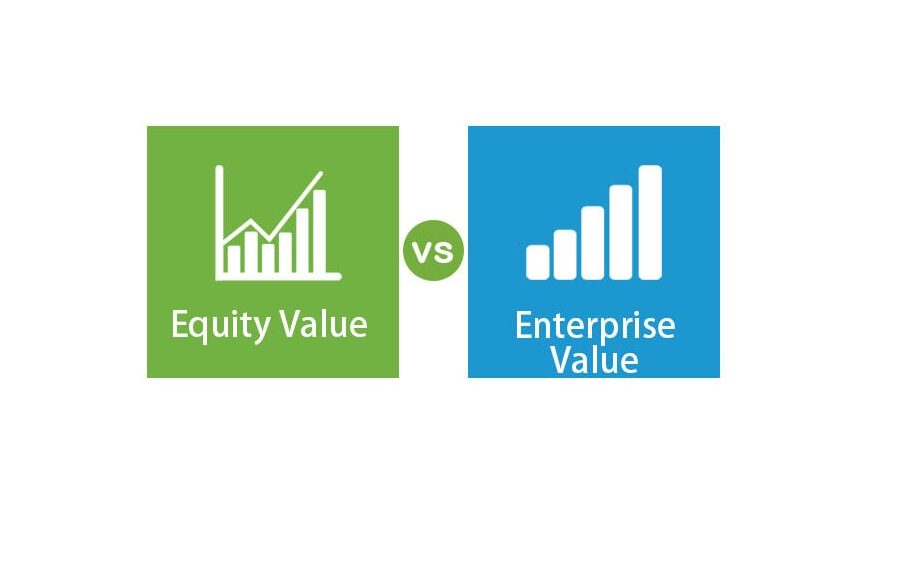The two most common types of value for a company are enterprise value (EV) and equity value (EV). While both are necessary measures of a company’s worth, they can differ in the calculation. The primary difference between enterprise value and equity value is simple. Enterprise value captures the value of a company as a whole, while equity value only captures the value of equity holders. This article will outline the different ways in how these two can be calculated:
Table of Contents
1) Operating Income Approach
Operating income is a measure of a company’s profitability. It is calculated as revenue-less expenses, including operating and non-operating costs. The operating income approach is a way of calculating the difference between enterprise value and equity value.
The approach calculates the present value of expected future operating income. This future operating income is then discounted back to the present based on the company’s weighted average cost of capital. The difference between enterprise value and equity value is the present value of the excess cash flow or the cash flow that is not needed to support the company’s operations.
2) Cash Flow to Equity Approach
Another way to calculate the difference between enterprise and equity values is to use the cash flow to equity approach. It is a standard method you will come across when comparing enterprise value vs equity value. This approach considers a company’s operating cash flow, depreciation and amortization, capital expenditures, and interest payments. It then subtracts out the company’s dividends paid to shareholders. The result is a number that represents how much cash flow is available to equity holders after all other obligations have been paid.
3) Residual Income Approach
The residual income approach is a way of calculating the difference between enterprise value and equity value. It is used to measure the cash flow available to shareholders after all expenses and debt obligations have been paid. Companies use this approach to assess an investment’s attractiveness or value to a company.
4) Book Value Approach
The book value approach is a method of calculating the difference between enterprise value and equity value. This approach considers the historical cost of assets and liabilities and any adjustments to these values over time. The book value approach is typically used by financial analysts when valuing companies.
The main advantage of the book value approach is that it is relatively simple to calculate. Experts can use this approach to value companies of all sizes and industries. In addition, the book value approach is often used as a starting point for more complex valuation methods.
5) Comparable Company Approach
The Comparable Company Approach is a valuation method that looks at publicly-traded companies in the same industry with similar business characteristics to estimate the value of a company. This approach is also sometimes referred to as the multi-comparable or peer group analysis. The method is calculated by taking the average of the market capitalization of the companies in the peer group. It provides a more accurate estimate of a company’s value than other valuation methods, such as the Discounted Cash Flow Method.
6) Discounted Cash Flow Approach
Discounted cash flow (DCF) valuation is a company valuing by discounting future cash flows to present value. The idea behind this approach is that the value of the company is equal to the sum of all its future cash flows, discounted at an appropriate rate.
The DCF approach has two main advantages over other valuation methods. First, it explicitly considers the time value of money, which is a crucial consideration in any investment decision. Second, it forces the analyst to think carefully about all the factors affecting a company’s future cash flows and make explicit assumptions about these factors.
The DCF valuation is based on several assumptions about the future, which may or may not be accurate. As a result, DCF valuation is more of an art than a science, and different analysts can often arrive at very different values for the same company using this method.
Conclusion
The six methods above are all ways to calculate the difference between enterprise and equity values. Each method has its strengths and weaknesses. The best method to use depends on the situation.
Also Read: Putting a Value on Your Peace of Mind: Learn about Life Insurance

